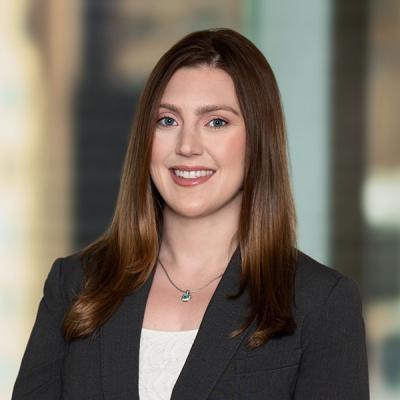New York’s Office of the Medicaid Inspector General Creates Abbreviated Self-Disclosure Process
On August 21, 2023, the New York State Office of the Medicaid Inspector General (OMIG) issued updated guidance regarding its Self-Disclosure Program (Updated Guidance). In the final days of 2022, New York’s Department of Social Services adopted revised regulations that set forth the requirements for participation in OMIG’s Self-Disclosure Program, as well as regulations regarding Medicaid fraud, waste, and abuse prevention, and Medicaid compliance programs. Since the enactment of these regulations, OMIG has promulgated several guidance documents, including in January 2023, when it first published guidance regarding the Self-Disclosure Program (Original Guidance). In the Updated Guidance, which replaced the Original Guidance, OMIG announced its new Abbreviated Self-Disclosure Process (ASDP).
When a health care provider receives an overpayment, it is the provider’s responsibility to evaluate the overpayment and determine the reason it occurred. Based on this evaluation, the provider will decide whether the new ASDP or the existing Full Self-Disclosure Process (FSDP) is appropriate for reporting the overpayment to OMIG. The provider must complete the ADSP or the FSDP within 60 days of overpayment identification. This blog post provides an overview of both processes.
Abbreviated Self-Disclosure Process
Providers can use the ASDP to disclose overpayments resulting from routine adjustments or transactional errors where the error had minimal monetary or program impact. The Updated Guidance indicates that the following examples of adjustments or errors can be explained and reported through the ASDP:
· routine credit/balance coordination of benefits overpayments;
· typographical human errors;
· routine Net Available Monthly Income (NAMI) adjustments;
· instance of missing or faulty authorization for services due to human error;
· instance of missing or insufficient support documentation due to human error;
· inappropriate rate, procedure, or fee code used due to typographical or human error; and
· routine receipt enrollment issues.
In the above instances, providers can undertake the ASDP process by submitting the Self-Disclosure Abbreviated Statement and the accompanying disclosure data spreadsheet via OMIG’s website. Entities must complete applicable voids or adjustment transactions before beginning the ASDP. The ASDP cannot be used – and the FSDP is instead required – in instances where the overpayment is not related to claims data, such as when disclosing damaged, lost, or destroyed records (which must be reported through the Statement of Damaged, Lost or Destroyed Records), or when the overpayment relates to an excluded provider or a provider not enrolled in the Medicaid program. OMIG recommended in an updated Frequently Asked Questions that, as a best practice, providers aggregate all submissions required under the ASDP into a monthly report. This report would be due on the 5th of the month following the month in which the claims were voided or adjusted. OMIG projects that the first month of reports will begin in September and that providers’ first monthly reporting will be due on October 5, 2023.
Full Self-Disclosure Process
If a provider finds an error that requires a formal corrective action plan, they should use the FSDP.
When the reportable event does not meet the above-listed ASDP criteria, the provider must undertake the FSDP. The provider must use the Self-Disclosure Full Statement and its accompanying claims data spreadsheet to disclosure the following:
· any error requiring the institution of a corrective action plan;
· actual, potential, or credible allegations of fraudulent behavior by employees or others;
· discovery of an employee on the Excluded Provider list;
· documentation errors resulting in overpayments;
· overpayments resulting from software or billing system updates;
· systemic billing of claiming issues;
· overpayments involving more than one Medicaid entity or provider;
· non-claim-based Medicaid overpayments;
· any error with substantial monetary or program impacts; and
· any instance upon direction by OMIG.
The provider must submit a Self-Disclosure Full Statement (which includes the Claims Data File and the Mixed Payer Calculation Form, if applicable), Certification to OMIG. Importantly, and like the ASDP, all providers must meet OMIG’s eligibility criteria to participate in OMIG’s Self Disclosure Program. For example, a provider cannot participate in the ASDP or the FSDP if the provider is under audit, investigation, or review by OMIG, and the overpayment and related conduct relate to such audit, investigation, or review. A provider also cannot participate in the ASDP or the FSDP process if it is a party to a criminal investigation. Additionally, the disclosure cannot relate to conduct that OMIG has already determined, calculated, researched, or identified at the time of the disclosure.
Conclusion
OMIG’s Original Guidance and Part 521 of the Department of Social Services’ regulations were clear that any Medicaid overpayment, regardless of the dollar amount, must be reported, returned, and explained. The Updated Guidance and the establishment of the ASDP further confirm OMIG’s position on overpayments. Providers must account for all overpayments, including those resulting from routine adjustments or transactional errors, and that have already been administratively addressed. Indeed, both the Updated Guidance and OMIG’s updated Frequently Asked Questions caution that merely voiding or adjusting the claim will not absolve the provider of their reporting obligations. Consequently, the burden on both providers to report all overpayments received, and OMIG to review and assess every ASDP and FSDP submission, will likely increase over time.


